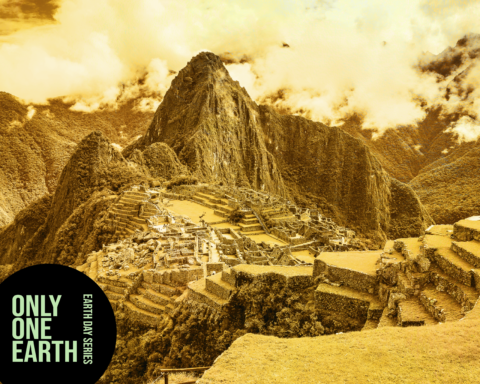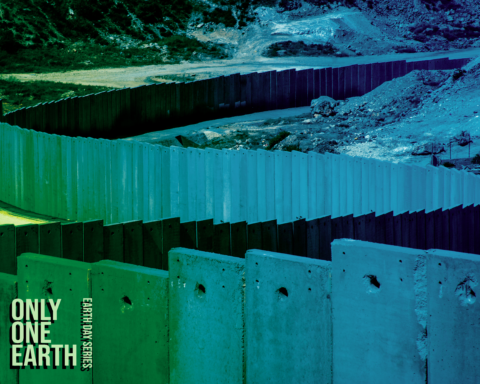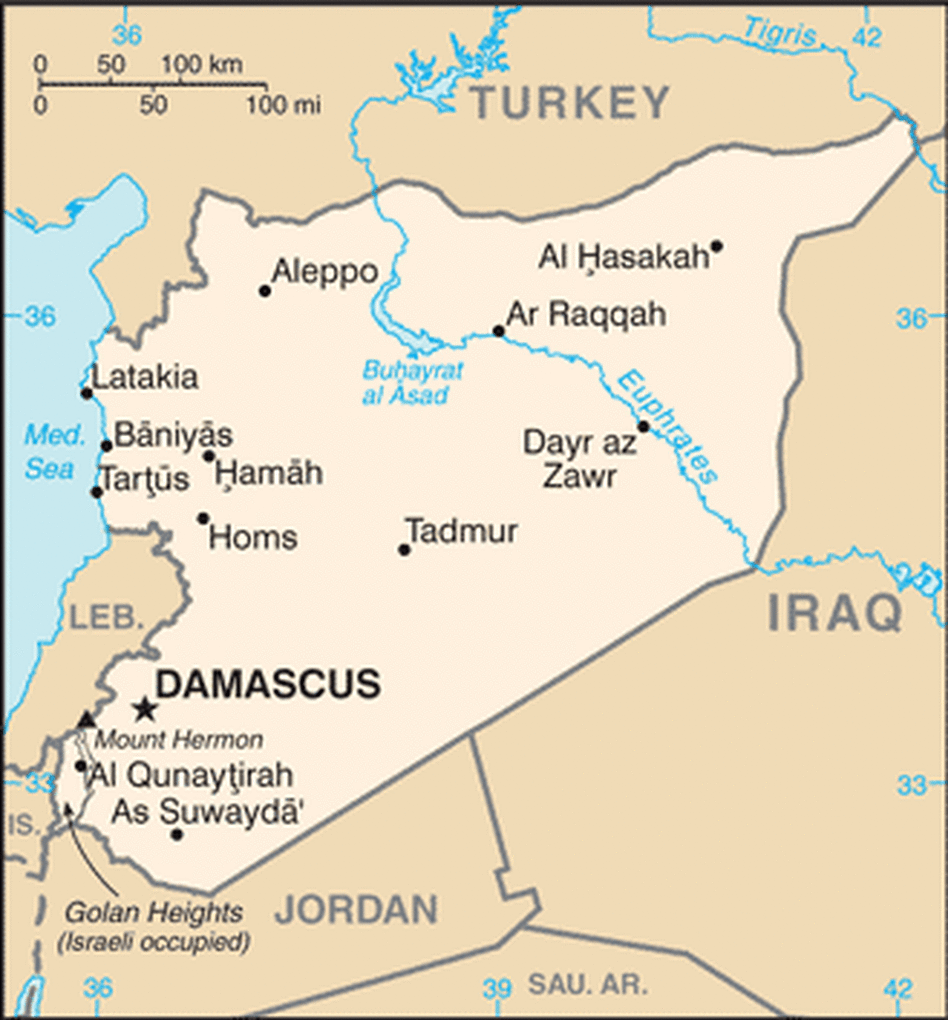 Unbound was very pleased, just two weeks ago, to win an award for the multi-post issue, Hope for Eco-Activists: Discovering an Environmental Faith,[i] one of four given to Unbound by the Associated Church Press.[ii] That series looked at eco-justice communities, forms of eco-art, a congregation installing solar collectors, eco-spirituality, and other ways to emphasize determined hope in the face of virtually irreversible climate change. Larry Rasmussen’s theological essay asked whether a “sacramental universe” could still be envisioned.[iii]
Unbound was very pleased, just two weeks ago, to win an award for the multi-post issue, Hope for Eco-Activists: Discovering an Environmental Faith,[i] one of four given to Unbound by the Associated Church Press.[ii] That series looked at eco-justice communities, forms of eco-art, a congregation installing solar collectors, eco-spirituality, and other ways to emphasize determined hope in the face of virtually irreversible climate change. Larry Rasmussen’s theological essay asked whether a “sacramental universe” could still be envisioned.[iii]
Yet we have seen once again that many churches ignored the admittedly non-liturgical holiday of Earth Day while focusing prayer on the drama of the Boston marathon bombers and other high-profile events. Though dramatic in geological terms, climate change has much less immediate drama than a terrorist manhunt or other media-driven spectacles. Even where ecological disasters may be striking–along a flooding upper Mississippi River for example –TV weather people focus on the immediate concern rather than the deeper causes. They report on weather, not climate, even though the temperature fluctuations of an early spring are evidence of data reflecting the deep shift that is occurring.
Remembering Rachel Carson’s Silent Spring, which looked partly at the cumulative influence of pesticides on birds and other species, we have a silent tsunami gathering force in melting ice caps, rising seas, dwindling species, and more extreme storms. There is no longer much dispute about this, but there is little motion toward building green infrastructure or putting carbon taxes in place that would mark a serious level of response.
 Two profound Christian writers, Wendell Berry and Bill McKibben, have devoted much of their work to sounding the alarm, translating the alarms of other species, and the analyses of scientists like James Hansen. Berry’s essays, like the 2010 What Matters?, [iv] speak directly of the realities evoked in his short stories and poems and reveal a consistent “agrarian vision.” McKibben’s website depicts an already changed “eaarth”[v] and invites us into the campaigns of 350.org., which have gone from the Keystone pipeline fight to divestment from the carbon-addicted energy mega-corporations.[vi]
Two profound Christian writers, Wendell Berry and Bill McKibben, have devoted much of their work to sounding the alarm, translating the alarms of other species, and the analyses of scientists like James Hansen. Berry’s essays, like the 2010 What Matters?, [iv] speak directly of the realities evoked in his short stories and poems and reveal a consistent “agrarian vision.” McKibben’s website depicts an already changed “eaarth”[v] and invites us into the campaigns of 350.org., which have gone from the Keystone pipeline fight to divestment from the carbon-addicted energy mega-corporations.[vi]
Writing from Louisville, where there is no passenger rail service in, out, or within the city and where a long-delayed, backwards-looking project to build two new auto bridges across the Ohio River has finally begun, it is hard to be hopeful. The gas company—owned by a distant corporate parent—is putting in new piping, but solar panels remain rare. There is recycling in town, though without deposit values on bottles and cans; prices for aluminum and other recyclables remain low. But why focus only on other institutions?
In a nearby church lawn, there stands a small dead tree, originally planted on an Earth Day with fanfare and hope. Cut down once by accident by a big riding mower, the tree was protected and regrew a small trunk and branches. Yet despite that care, something removed a ring of bark at the base of the tree, cutting the flow of nutrients upward. Now the trunk and branches have no leaves and no blossoms, perhaps reminding us of the fig tree cursed in Matthew 21:18-21. That tree stood for an unfruitful Jerusalem.
for an unfruitful Jerusalem.
And yet, dead as its superstructure, there are two green shoots coming from the root below where the bark was broken. Will that little tree have a third chance? Or will lawn be replanted over that once memorial tree?
To be clear, trees can be ornamental and meaningful at the same time, as can lawns and landscapes in general. So the story of accelerating climate change is a story of omission and commission, of not protecting as well as using up, of not paying enough attention to what is outside our immediate living space. The message of any particular plant or place is that it is particular, cared for by particular people, and even care misses things.. Technology can only do so much once a tipping point is reached.
We are part of the s ilent tsunami, breaking across continents and across almost every piece of undeveloped land. More dangerous than population growth (real as that is in many places) is the growth of consumption. Deeper than fracking runs the drive for profit; our competition among ourselves becomes a competition with nature, a contest without a winner, an unfruitful future. May it not be so.
ilent tsunami, breaking across continents and across almost every piece of undeveloped land. More dangerous than population growth (real as that is in many places) is the growth of consumption. Deeper than fracking runs the drive for profit; our competition among ourselves becomes a competition with nature, a contest without a winner, an unfruitful future. May it not be so.
WHAT YOU CAN DO? (Despite the inertia of our culture and the capture of our political institutions!):
Contact Secretary of State John Kerry on the Keystone Pipeline: This project would, in the words of a normally pro-corporation Thomas Friedman, “facilitate the dirtiest extraction of the dirtiest crude from the tar sands in Canada’s far north.”[vii] Here is a link to take action against: http://act.350.org/letter/a_million_strong_against_keystone/. For the pro development side, including several senators: http://www.willistonherald.com/news/hoeven-leads-keystone-pipeline-campaign/article_3e741ef0-6644-11e2-b044-001a4bcf887a.html
Be open to new approaches: Nicholas Lemann, in an article reviewing the wins and losses of the environmental movement, points to a “Cap-and-Dividend” approach that would give rebates to purchasers of products made through low-carbon manufacturing. This approach would put more incentive in consumers’ hands rather than among companies in the manner of Cap-and-Trade, although some form of “green tax” or “carbon tax” is needed to internalize the costs of warming the atmosphere.[viii]
Plant Trees on Arbor Day: Arbor Day, the last Friday in April, originated among Nebraskans who had relatively few trees. Thirty-two states follow the national day designation, but 18 lift up different dates.[ix] Some public parks, like Bernheim Forest near Louisville, give away small trees to plant in the spring. One of those was the tree planted whose history was noted above.
 May we remember those new little sprouts, like God’s ever-new grace, saying that it is never too late to take action.[x]
May we remember those new little sprouts, like God’s ever-new grace, saying that it is never too late to take action.[x]
Supplemental Material:
Matthew Fox was in Albany with the Capitol Region Theological Center for the whole weekend, and preached last Sunday at First Reformed Church of Schenectady, NY in honor of Earth Day. Dr. Fox’s sermon starts about 20 minutes into this video.
[i] https://justiceunbound.org/journal/current-issue/hope-for-eco-activists-discovering-an-environmental-faith/
[ii] https://justiceunbound.org/action-alerts/action-news/unbound-wins-four-associated-church-press-awards/
[vii] Quoted in Bill McKibben, “Some Like It Hot!,” NY Review, May 9, 2013, p. 60.
[viii] See Nicholas Lemann, “When the Earth Moved: What Happened to the Environmental Movement?” The New Yorker, April 15, 2013, p. 76.
[x] The PC(USA) environmental ministries office encourages congregations to choose a Sunday appropriate to its own schedule to focus on eco-justice, using Sunday Morning Sustainability materials prepared by the National Council of Churches eco-justice program.
Title image courtesy of mastergardening.com






Unbound Social